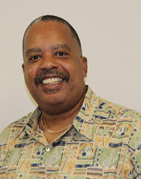E-Newsletter - December 2017
disparities corner
The Alliance Health Disparities Committee, led by Electra D. Paskett, PhD, periodically reviews inclusion of patients involved in Alliance trials to improve best practices for outreach. In upcoming e-newsletters, the committee will share these so Alliance members can benefit from some of the great activities going on throughout our Group and incorporate those that best fit the populations we serve.
In this column, Kevin Cassel, DrPH, MPH, offers insight on promoting clinical trials in underserved communities.
Promoting Clinical Trials and Training Physicians Serving Medically Underserved Communities
 By Kevin Cassel, DrPH, MPH
By Kevin Cassel, DrPH, MPH
Assistant Professor, Cancer Prevention & Control Program
University of Hawaii Cancer Center
Minority and medically underserved populations are underrepresented in cancer clinical trials limiting the generalizability of research findings to these populations. Physicians play a critical role in clinical trial recruitment, and can educate their minority and underserved patients about trials, helping them to make informed decisions about their treatment. However, clinical trials training is not part of most medical school's curricula. Many doctors have limited knowledge about clinical trials, and have had no practical experience discussing clinical trials with patients. The University of Hawaii Cancer Center (UHCC), and its National Cancer Institute, Community Oncology Research Program (NCORP) investigators have adapted the medical education curriculum of the state’s only medical school, the University of Hawaii John A Burns School of Medicine (JABSOM), to help promote minority participation in clinical trials.
The mission of JABSOM is to train high-quality physicians, biomedical scientists, and allied health workers, providing an opportunity previously unavailable to the residents of Hawaii and other U.S. Associated Pacific Island (USAPI) jurisdictions. More than 60 percent of practicing physicians in Hawaii and the USAPI are graduates of the program. JABSOM is also one of the most culturally and ethnically diverse medical schools in the country, and its student body mirrors the rich diversity of the state's multiethnic population. JABSOM utilizes Problem-Based Learning (PBL), incorporating real world scenarios that allow students to learn content, critical thinking and problem-solving skills simultaneously. Two PBL cases were adapted by UHCC’s NCORP physicians to increase the awareness and self-efficacy of JABSOM medical students in understanding, and discussing clinical trials.
Select medical students each year are also provided with practical learning opportunities through a formal elective with UHCC regulatory, clinical research associates and with UHCC NCORP physicians who are conducting clinical trials. The physicians emphasize the contribution of clinical trials to their patients care. This ‘shadowing’ opportunity provides an early clinical experience and serves to further integrate the student’s newly acquired clinical trials knowledge with hands-on interactions. After completion of this shadowing program, these students are charged with presenting an overview on the clinical trials training curriculum to the incoming class of first-year students.
All students complete a written pretest assessing their confidence levels related to clinical trials upon entry into medical school. Follow-up assessments on changes in knowledge resulting from the program are obtained during the students’ third year. Since 2006, 10 cohorts of medical students, totaling approximately 600 medical students have participated in the project. Analysis of cohort data has demonstrated that students’ have an increased knowledge of, and ability to discuss clinical trials.
The UHCC NCORP’s clinical trials curricula enhancement strategies at JABSOM intends to support minority participation in clinical trial research by improving provider knowledge and ability to discuss clinical trials. Further curricula enhancements, including the use of standardized patients for clinical trials scenarios are being developed to build the students’ practical skills in explaining clinical trials to patients. Long-term evaluations of JABSOM’s medical students who are now in actual medical practices and their propensity to affect minority accruals to trials are being developed. For more information about this program contact: Dr. Kevin Cassel at 808 564-5916 or by e-mail: kevin@cc.hawaii.edu.
For other articles in the December issue of the Alliance E-News newsletter, see below.
-
Recap: Alliance Fall Group Meeting
Message From the Group Chair and Group Statistician -
Spotlight on Trials:
Recent Alliance Protocol Activations
Ongoing Trials - Alliance A011104 and Alliance A011106 - Alliance at ASH 2017
- Alliance at SABCS 2017
-
Announcements: Awards + Honors
Alliance Most Significant Manuscripts
Alliance Scholar Award -
Announcements: General
Service Recognition: Alliance Patient Advocate Committee Members
In Memoriam: Jack Whelan
Alliance/ASCO Abstract Submission Deadline -
Featured Columns
Meet the Alliance Executive Officers
Alliance Disparities Committee Corner
Did You Know? Alliance Website Tips - Holiday Closures


